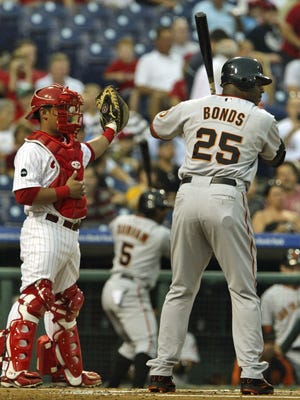MLB players' union approves dugout signal for intentional walks

Major League Baseball and its players’ association officially killed the intentional walk as we know it on Wednesday.
The union agreed to MLB’s request to empower managers to order an intentional walk via a signal from the dugout, the least-intrusive of several initiatives to speed up the pace of play that Commissioner Rob Manfred seems intent on implementing.
MLB Commissioner Rob Manfred: Union may have no say in 2018 rules changes
Yankees, Joe Girardi ponder pace of play improvements
And some players are not yet ready to believe the four-ball intentional pass is dead.
"Every once in a blue moon you get an intentional airmail and it could score a run," Blue Jays reliever Jason Grilli told USA TODAY Sports. "So you're taking away potential bloopers, or potentially the difference in a game. It happens, there are mental mistakes. This game is played by humans and there are human elements, whether it's a bad call by an umpire or a miscue by a player, there's no formulas for that.
"I'm a traditionalist. I like the game the way it has been for years. Obviously you want the game to get better any way it can, but I don't think these changes are going to have drastic results."
Perhaps realizing he has a bigger fight on his hand in 2018, MLBPA executive director Tony Clark confirmed that the intentional walk will be modified in 2017.
"As part of a broader discussion with other moving pieces, the answer is yes," Clark wrote Wednesday in an email to The Associated Press. "There are details, as part of that discussion, that are still being worked through, however."
The agreement comes in the wake of a series of news conferences held by Manfred and Clark, the final one coming Tuesday when the commissioner expressed anger at Clark’s indifference to his pace-of-play initiatives, and said he planned to utilize a unilateral implementation of the rules – including a possible pitch clock – in 2018.
Clark certainly took exception to Manfred’s comments and said rule changes already are expected to be implemented this season. There are plans for a two-minute limit this year for instant replay reviews. And there will be pace of game warnings and fines.
The rancor comes less than three months after MLB and the union ratified a five-year extension of the Collective Bargaining Agreement. The first victim will be the intentional pass, a four-pitch process that on the surface seems redundant, but also a part of the game’s fabric that ardent fans find endearing.
A pitch clock would be far more intrusive, and likely be met with more resistance from the union.
“I don’t think that’s fair," says Chicago White Sox closer David Robertson. "It’s just going to lead to more pitching changes. Because if you can’t go visit, then you’re always going to have the guys warming up. You’re going to have a lot more injuries coming out of the 'pen, I think. It’s tough to say because it would be such a significant change in the game.
"It doesn’t seem like it, but there’s a ripple effect that would come from that.’’
However, Manfred has expressed overriding concerns about the game’s growth and its ability to appeal to the casual fan. Pace of play seems to be his avenue to expanding appeal. Last year, the average time of a nine-inning game again hit the 3-hour mark.
Grilli, for one, doesn't believe those problems warrant significant reach from the commissioner's office.
"If they're giving out executive orders and that's what we have to play by, those are the rules of the game that we have to abide by,' he said. "But I don't think there's really much else that can be made to make this game better on the field that way."
Contributing: Ted Berg in Dunedin, Fla.
Gallery: Best pictures from Spring Training
